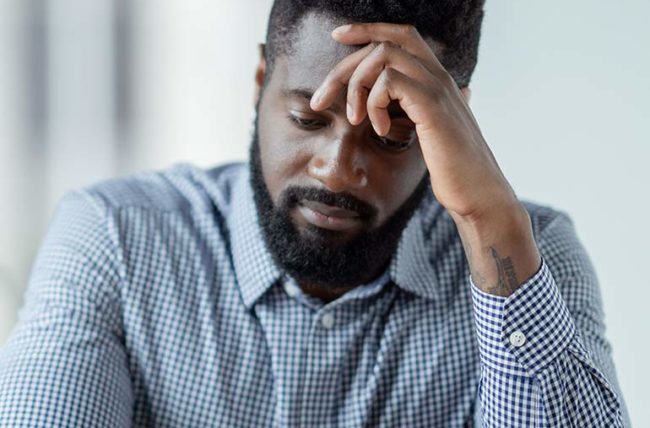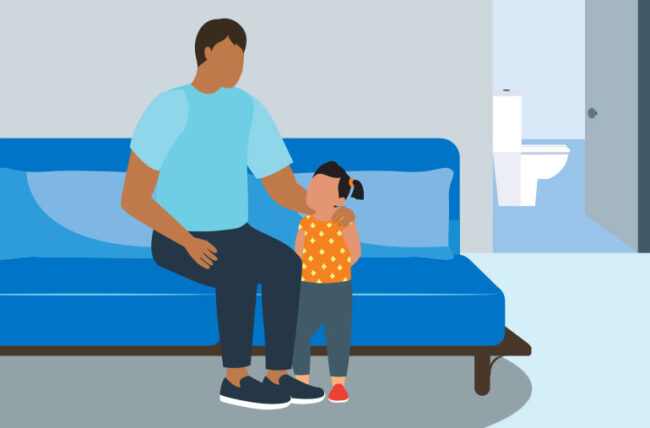You may think that your low sex desire, diminished energy, and fatigue are just part of aging. If you are a man (or a person who was assigned male at birth ), and you experience a variety of physical symptoms along with a depressive mood on a regular basis, it could be that you have hypogonadism or undiagnosed Depression.
It’s difficult to tell if you have low testosterone or depression. A healthcare provider will need to examine you further. Dr. Lawrence Hakim , an urologist, discusses the relationship between low testosterone levels and mood.
How low testosterone affects your mood
Androgens including testosterone are the hormones responsible for giving people their “male and female” characteristics. These hormones are also important for puberty, your reproductive system’s development and your ability reproduce.
All hormones including androgens can be compared to switches on a board. When they are switched on or off different things occur. When the production of these hormonal changes, it can cause physical, mental, and emotional effects. These changes are not all the same. They can be of varying severity depending on which hormone you’re adjusting to. In response to a change in one hormone, other hormones may also be affected. A decrease in one hormone could be a result of an increase in another. When you are experiencing hormonal imbalances it can lead to a number of different conditions.
As you age, your testosterone levels will decrease. However, they can fluctuate due to many factors. According to studies, these changes can affect your mood in a variety of ways. These changes can be a result of many factors including stress, lack sleep, dietary changes, aging, and an increase or decrease in physical activity.
You may be irritable if your testosterone levels are high. Low testosterone can cause you to feel tired, depressed or weak.
Dr. Hakim says that people with hypogonadism or low testosterone often complain of feeling tired, having no energy and no desire to engage in sexual activity. They may also notice a reduction in their muscle mass.
Hypogonadism can be associated with obesity, cardiovascular disease, and increased fat mass. These are common symptoms and signs that can be linked to low testosterone.
Signs of depression and low testosterone
Low testosterone and depression have many of the same symptoms.
- Irritability.
- Mood swings.
- Reduced libido.
- Fatigue.
- Lack of motivation
- Social withdrawal
- Anxiety.
- Focusing is difficult.
- Sleep disturbances and restlessness.
What do we mean when we describe someone as depressed? “We often describe someone as being low-energy and not wanting to do things that bring them joy. These are also common symptoms of low testosterone,” says Dr. Hakim. Sometimes, low testosterone and hypogonadism are misdiagnosed as clinical depression. Before treatment, it is important to rule out a physical condition such as hypogonadism.
Depression or low testosterone can cause a variety of physical symptoms. Depression can cause back or neck pain. However, people with depression may not exhibit other symptoms that are usually associated with low testosterone. These include:
- Reduced muscle mass.
- Increased breast tissue.
- Loss of strength
- Sudden weight gain.
- Erectile dysfunction
If you have depression, or an anxiety disorders, then your symptoms could worsen with time if the low testosterone levels lead to a further decrease in sexual function and libido.
Dr. Hakim advises that if you are experiencing any of these symptoms and have a sexual dysfunction it is important to check your testosterone levels. Hypogonadism could be the cause. You don’t want low testosterone to be ignored. You should address this as well as any other underlying diagnoses that need to be addressed.
When should you see a doctor
You should consult a doctor if you are experiencing symptoms such as sudden weight gain, a decrease in sexual drive or performance or other mental or emotional symptoms. tests for testosterone levels can be performed. If your testosterone levels are low, there are a number of effective treatment options that can be used to bring them back to normal. Even if your test results show that you do not have low testosterone, knowing the results can help you feel more confident and will also help your doctor better manage your symptoms.
Dr. Hakim says that many of these symptoms can be caused by other factors, such as stress and anxiety, work pressures, ageing, relationship problems, or even other medications. “A multispecialty approach will ensure the best results and patient satisfaction.”























